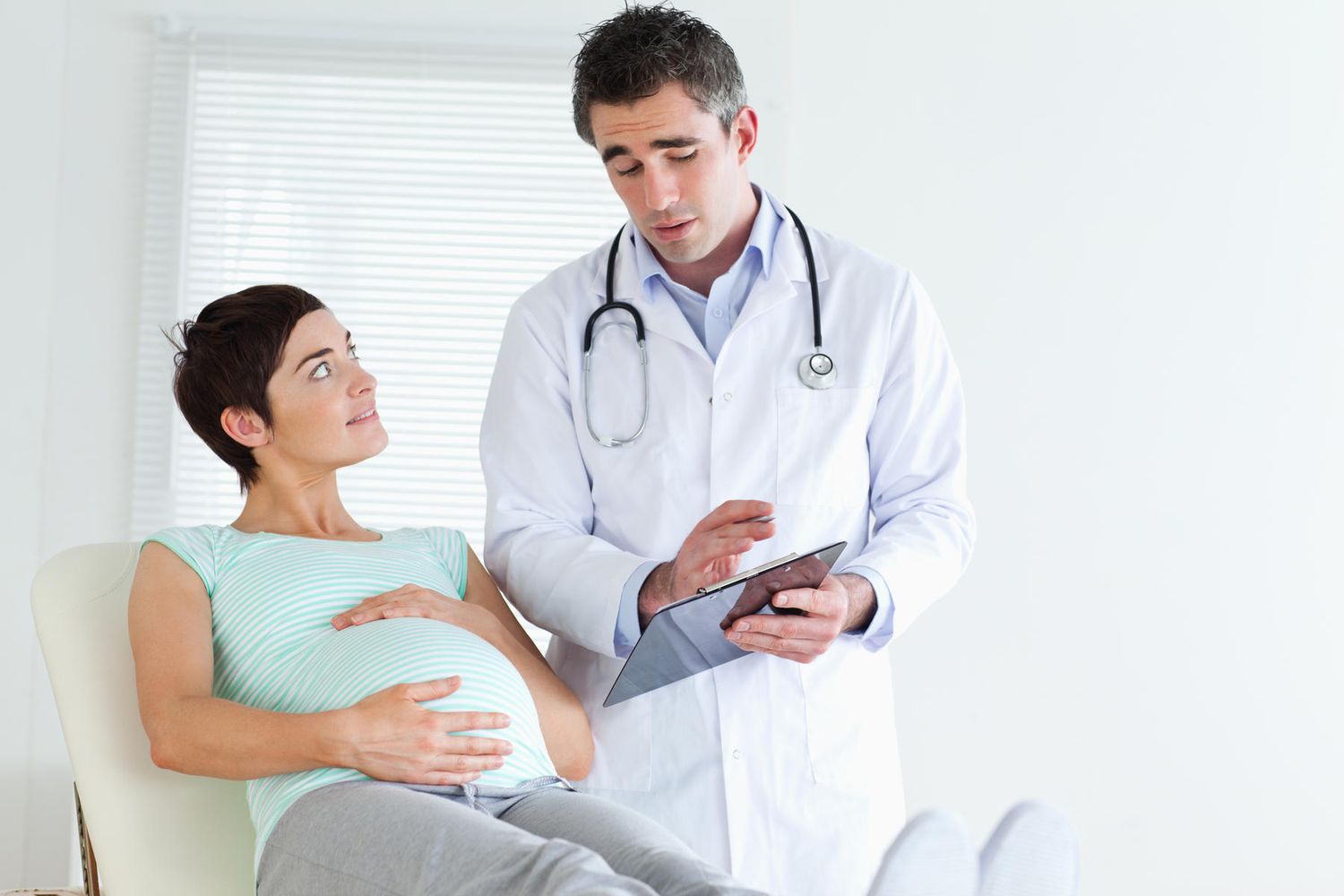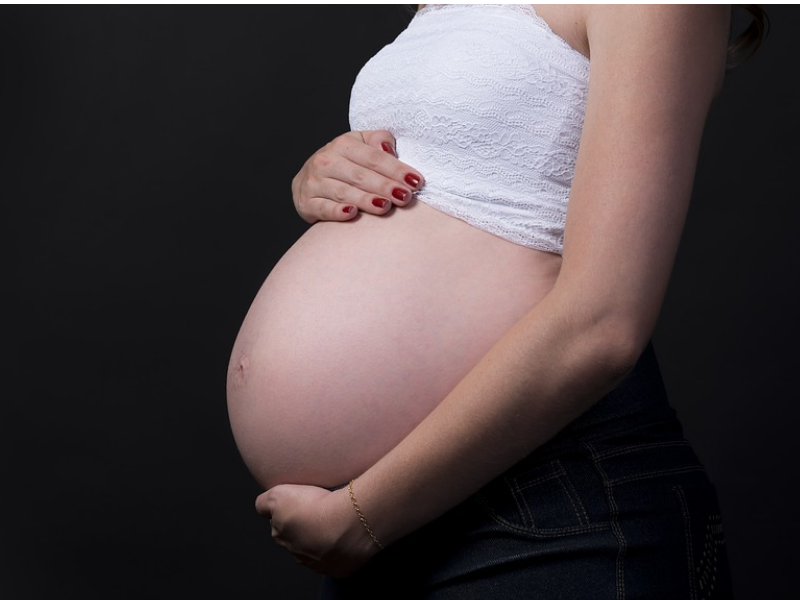
Fibroids aur Pregnancy – Fibroids are uterine tumors that increase the risk of cancer by only 0.5%. This is uterine growth, which is a benign condition. There is a risk of cancer in only one case of fibroid out of 10,000. They do not occur in the puberti age and new lumps are not formed even after menopause. These bales are mostly between the ages of 25-40. Women who have high estrogen are at higher risk of both fibroids and cancer. The reason why there are fibroids is not yet known. They are usually genetic. It is believed that one out of every five women has symptoms of uterus fibroids. Women suffering from overweight or obesity are also more vulnerable to them. They can also be caused by hormonal changes. Their risk depends on the size and position of the fibroids.
Symptoms of Fibroids :
- More bleeding and clotting during periods
- waist and abdominal pain, constipation
- Frequent urination
- Foot pain and swelling
- Pain during intercourse
- Problem in conception
Also Read – Pregnancy After Abortion: Safety, Complications, and More
Pregnancy and Fibroids
There can be many reasons for not getting pregnant, one of them is the problem of fibroid. By the way, experts believe that having fibroid is not a problem in conceiving. But sometimes fibroid can also cause pregnancy obstruction. It depends on the size and location of the fibroid. Since it is a non-cancerous lump that occurs in the uterus. Therefore, women have to face a lot of problems while getting fibroid during pregnancy. Read on to learn more about fibroid. Fibroids can cause miscarriage or premature labor-pain during pregnancy. Many times they increase with the size of the fetus and pressurize the bladder, causing problems with urination. They also put pressure on the blood vessels, causing swelling of the legs. They also create pressure on the tube connecting the kidney to the urinary bladder, which poses a risk to the kidney. But all these problems occur much later and their ratio is very less.

Does fibroid pregnancy cause obstruction? : Dr. Bandita Sinha, a gynecologist and fertility specialist at the World of Women, Navi Mumbai, says that fibroids are of different shape and size. It can be small like a pea and big like a ball. It is usually small and has no specific symptoms. Pregnancy is also not likely to cause much hindrance. But it is a little difficult to know the symptoms of fibroid and the discomfort it causes during pregnancy.
When should you worry about getting fibroid? : If you are about to conceive, then you need to know where the fibroid has occurred and how it can affect your pregnancy.
Varieties of fibroids
They are divided into three major parts-
- Submucous fibroids: These are in the uterine sac. Due to these, there can be complaints of excess bleeding and irregularity in periods.
- Intramural fibroids: These are the most common which occur on the wall of the uterus. They increase the urinary tract and cause problems like pelvic pain, heavy bleeding and back pain.
- Subsea Fibroids: They are outside the wall of the uterus and grow outwards. They do not cause problems in periods but can cause back pain. Sometimes it can cause severe pelvic pain.
Danger in Pregnancy
Fibroids are of different sizes. They can be small like peas and can also be big like volleyball. Some are even bigger than this. Even if there is a small fibroid in the uterus, it also grows like a fetus during pregnancy. In the early months of pregnancy, its growth is more rapid. There is a lot of pain and bleeding, many times hospitalization may be required. It is now a good thing in modern technology that doctors can look inside the uterus to ensure that fibroids cannot replace the developing embryo.The whole process of developing embryos and fibroids can be seen through ultrasound. The doctors’ job is to make sure that the fetus is also protected and growing in the urine with fibroids. Sometimes the fibroids are on the side of the cervix or in the lower side, they block the birth canal and normal delivery cannot take place, then C-section has to be done. In addition, labor pens from Fibroids soon
Do not be afraid of fibroids
Most people think that fibroids also increase due to changes in female hormones during pregnancy. But research suggests that the size of most does not actually increase. Even if increased, after delivery they come back again. But due to these, there is pressure and heaviness in the stomach. If they suppress a nerve, there is a sharp pain in the lower back and legs. Therefore, the family is complete and there is no problem with the fibroids, so be sure, after the menopause, they gradually disappear themselves. But for those who have to start a family and the fibroids are large sized, they are first shortened by medication or injections, these injections can be given for only six months. They are then removed with open surgery. If the fibroids are small, then diagnosis is possible with laparoscopic surgery. a positionIs red degeneration, when bleeding occurs between the fibroids. This condition is seen more in the three months between pregnancy. It hurts a woman a lot. Fibroids can cause two to three weeks before delivery, but there is no harm to the baby. If a woman is unable to conceive, then get the fibroids checked. If all other tests are okay, after removing the fibroids, the chances of conceiving can increase by 40 to 80 percent.
Be sure:
- If you exercise regularly.
- Do not have problems related to periods.
- Do not have problems in pregnancy.
- Do not feel heaviness or pain in stomach.
Also Read – Pregnancy After Abortion: Safety, Complications, and More
Be alert:
- There is pain in the waist and legs.
- Heavy bleeding or clotting in periods.
- Problem in urination.
- Constipation or feeling of heaviness.
- Suffer from overweight or obese.
What to do if you still conceive after having a fibroid? : There is a possibility of conception even after being fibroid. You can guess this by looking at your sonography report. Most fibroids do not require treatment. But as the pregnancy increases, estrogen starts to be fibroid. This affects fetal development. Medications are usually required to prevent fibroids from growing so that there is no obstruction in pregnancy.

